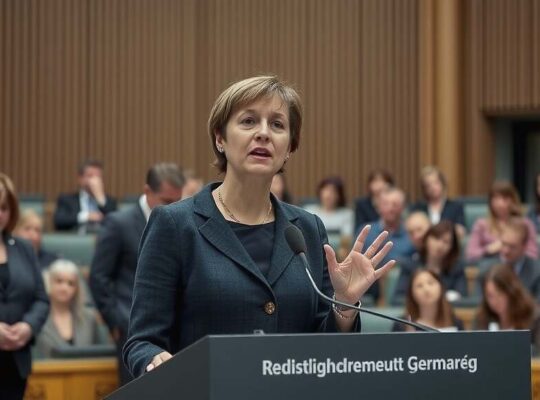The proposed reintroduction of mandatory military service in Germany faces staunch opposition from the German Youth Council (Bundesjugendring), with its chairwoman, Daniela Broda, arguing that it represents a misguided approach to national security and undermines the agency of young citizens. Broda, slated to testify before a parliamentary hearing on the planned military service law, contends that young people are already actively contributing to societal well-being through youth organizations, volunteer work and civic initiatives – without the need for compulsion.
“Young people are already shouldering significant responsibility for society” Broda stated, “and it is a dangerous proposition to suggest they ‘owe’ a service based solely on their age”. She emphasized that a forward-thinking security framework should prioritize developing adaptable and resilient systems, rather than focusing on short-term recruitment targets or reviving outdated structures.
The Bundesjugendring critiques the current draft legislation, characterizing it as falling short of modern, intergenerational security standards. While the draft ostensibly champions voluntarism, Broda pointed to the underlying political justifications and wording – specifically references to the “availability” of young cohorts – as indicators of a concealed agenda to reinstate compulsory service. This dissonance, she argues, fosters uncertainty and erodes trust, creating the impression that state planning is prioritized over individual self-determination at a critical juncture in young people’s lives.
Broda highlighted the pre-existing pressures weighing on younger generations, who are still grappling with the aftermath of the COVID-19 pandemic, which significantly disrupted their education and development. Rising mental health concerns and anxieties about the future are exacerbated by global crises, climate change and economic instability – conditions where imposing state intervention into personal life plans carries disproportionate weight. The youth council’s stance underscores a growing concern that the government’s response risks alienating the very demographic it seeks to engage, ultimately hindering, rather than strengthening, national security.












